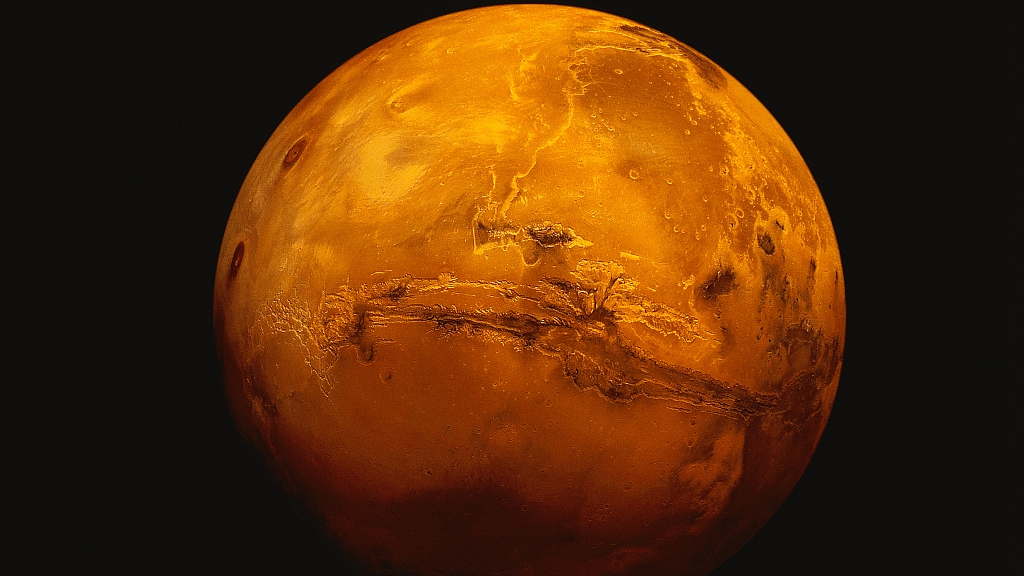
NASA's Curiosity rover has discovered rocks on Mars enriched in mineral salts, which are believed to be evidence of shallow briny Martian ponds that went through episodes of overflow and drying, according to a Nature Geoscience paper published on Monday.
The salts were found across a 150-meter-tall section of sedimentary rocks called "Sutton Island," which Curiosity visited in 2017.
Based on a series of mud cracks at a location named "Old Soaker," the team already knew the area had intermittent drier periods, but the Sutton Island salts suggest the water also concentrated into brine.
"We went to Gale Crater because it preserves this unique record of a changing Mars," said lead author William Rapin of Caltech. "Understanding when and how the planet's climate started evolving is a piece of another puzzle: When and how long was Mars capable of supporting microbial life at the surface?"
The deposits serve as a watermark created by climate fluctuations as the Martian environment transitioned from a wetter one to the freezing desert it is today, according to the paper.
This latest clue may be a sign of findings to come as Curiosity heads toward a region called the "sulfate-bearing unit," which is expected to have formed in an even drier environment. It represents a stark difference from lower down the mountain, where Curiosity discovered evidence of persistent freshwater lakes.
Gale Crater is the ancient remnant of a massive impact. Sediment carried by water and wind eventually filled in the crater floor, layer by layer. Each layer reveals a different era of Martian history and holds clues about the prevailing environment at the time, according to NASA.
Given that the Earth and Mars were similar in their early days, Rapin speculated that Sutton Island might have resembled saline lakes on South America's Altiplano.
Curiosity landed near Mount Sharp in the Gale Crater on Mars in August 2012 and reached the base of the mountain in 2014. It has since traversed through a diversity of environments where both water and wind have left their imprint.
Source(s): Xinhua News Agency